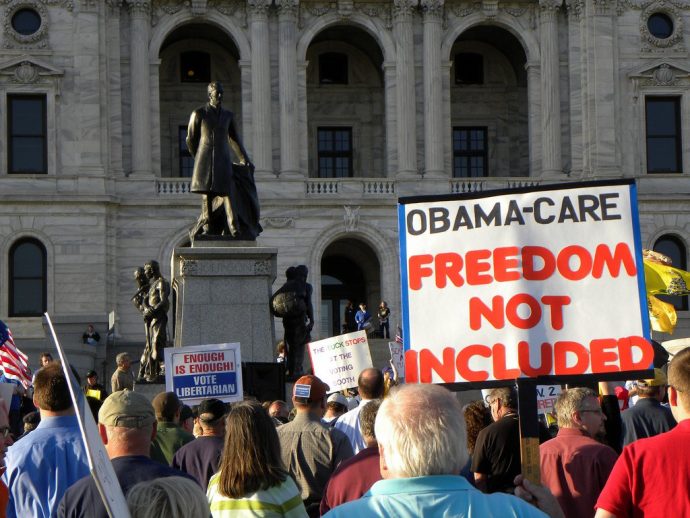Republicans continue to make a mess of things while attempting to fix the health care system.
Here is the lede of the above-titled article by Josh Shepherd at The Federalist:
Americans need relief from Obamacare. But Republican fixes have been polling even less popular—because they’ve done a poor job sharing their message.
Here is Shepard speaking with someone who does know how to communicate when it comes to health care reform — Grace-Marie Turner:
Since Tuesday afternoon, when the U.S. Senate voted 51-50 on a motion to proceed, Washington has been consumed with wall-to-wall health care reform coverage; a rumored Friday vote on the Senate floor looms large. The most significant accomplishment of President Barack Obama hangs in the balance: the Affordable Care Act (ACA), a.k.a. “Obamacare.”
For Grace-Marie Turner, this presents the chance of a lifetime. As head of the Galen Institute, for two decades she’s brought together diverse conservative factions to find consensus on what free-market health care reform really looks like. Called “the most influential conservative health care scholar in America” by Avik Roy—himself a rising star in policy circles—Turner regularly briefs Members of Congress on health care issues and serves as general editor of the website ObamacareWatch.
In a wide-ranging interview, Turner discusses the CBO’s “magical” estimates in favor of the ACA, an eye-opening story from an Uber driver she met recently, and how soon Americans could expect to see lower insurance premiums.
The Federalist: Assuming a successful Senate vote within the next couple days, do you expect the health care reform effort in Congress will lower the cost of buying health care insurance?
Grace-Marie Turner: The cost issue is so primary. Members of Congress know that lowering costs is the first thing the American people wanted before the Affordable Care Act passed, and what they want Congress to do now. Obviously, as we all know, the Affordable Care Act dramatically increased prices—the cost of family policies is up by 140 percent.
Many people get subsidies to help offset the cost, but, number one, somebody’s paying for that—namely taxpayers. And number two, there are millions of people who do not qualify for subsidies who are having to pay the full cost of these much more expensive policies.
Read more: The Federalist
Image credit: www.thefederalist.com.

